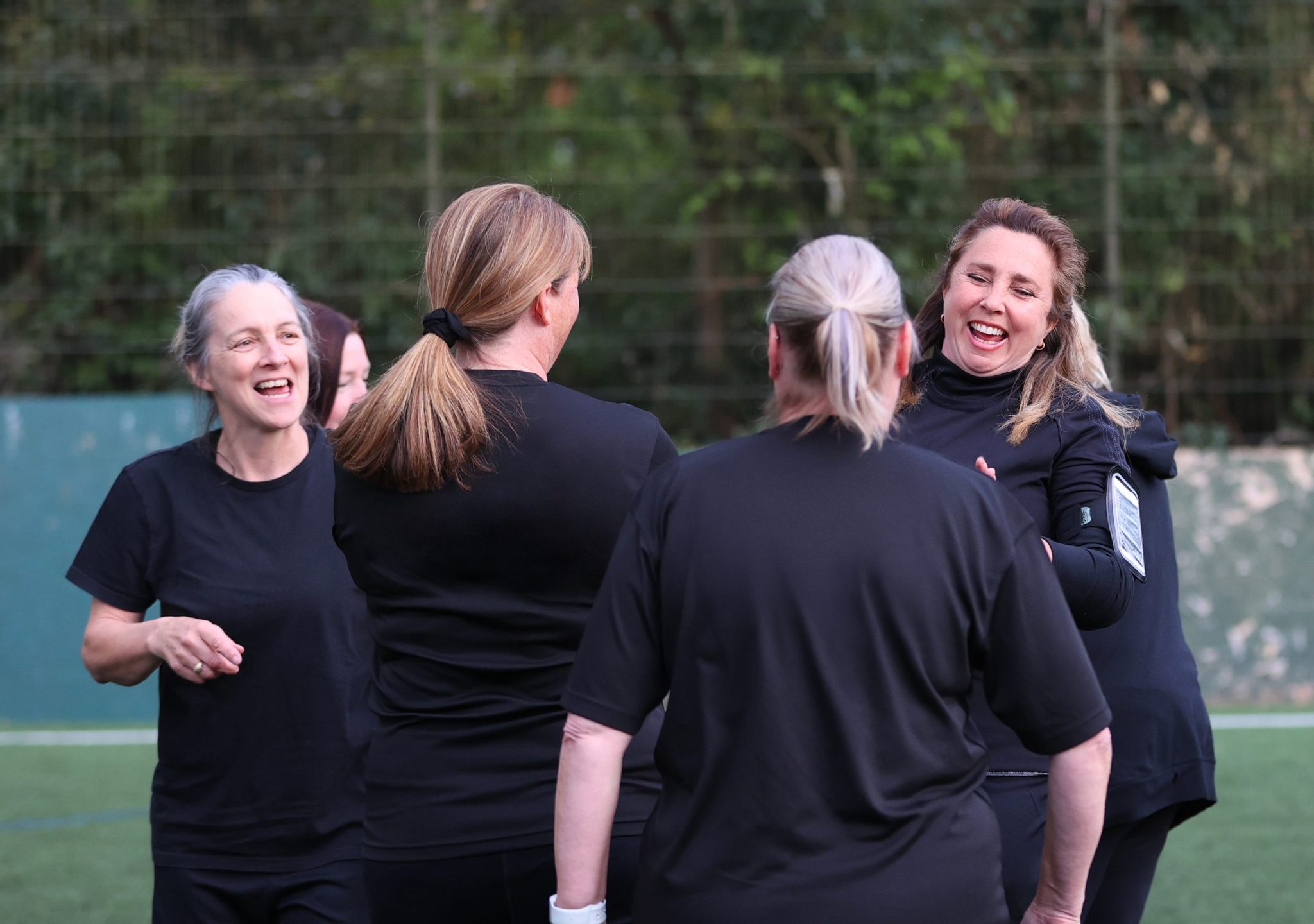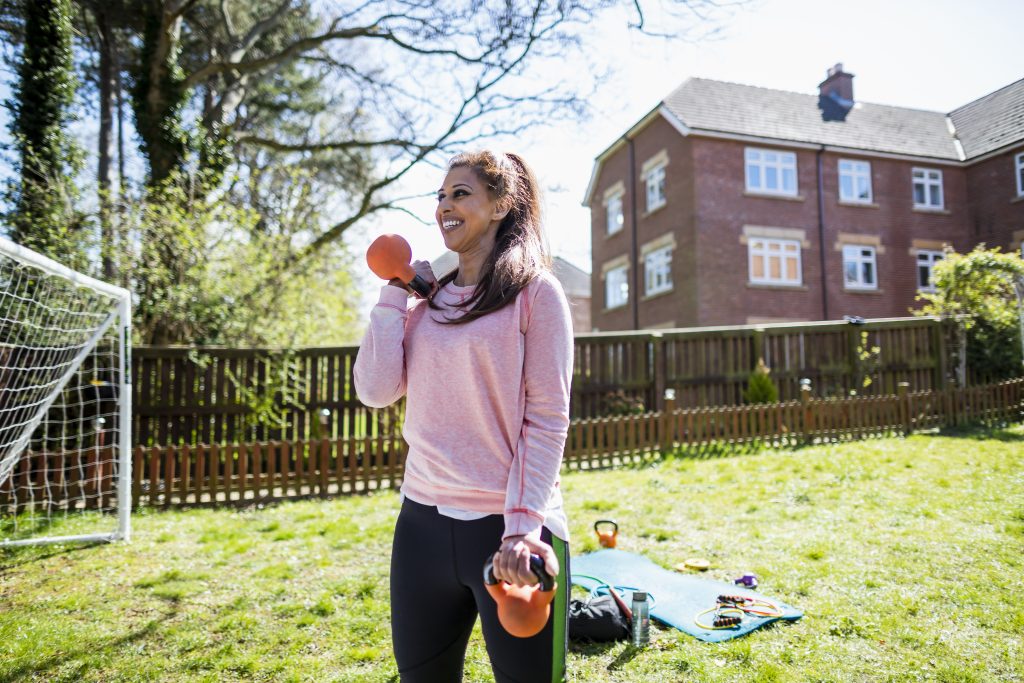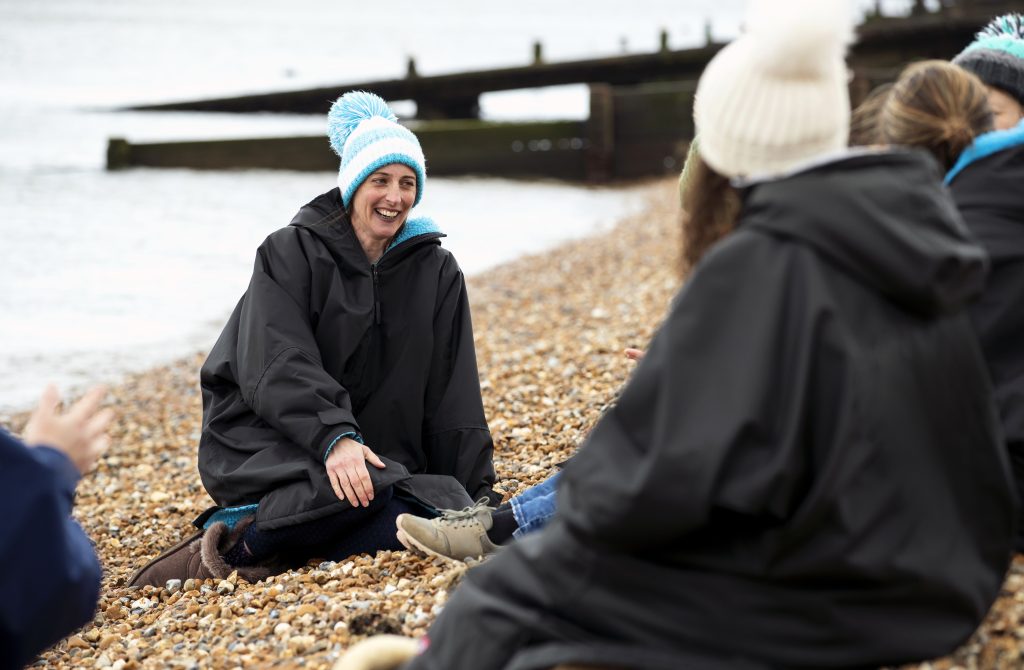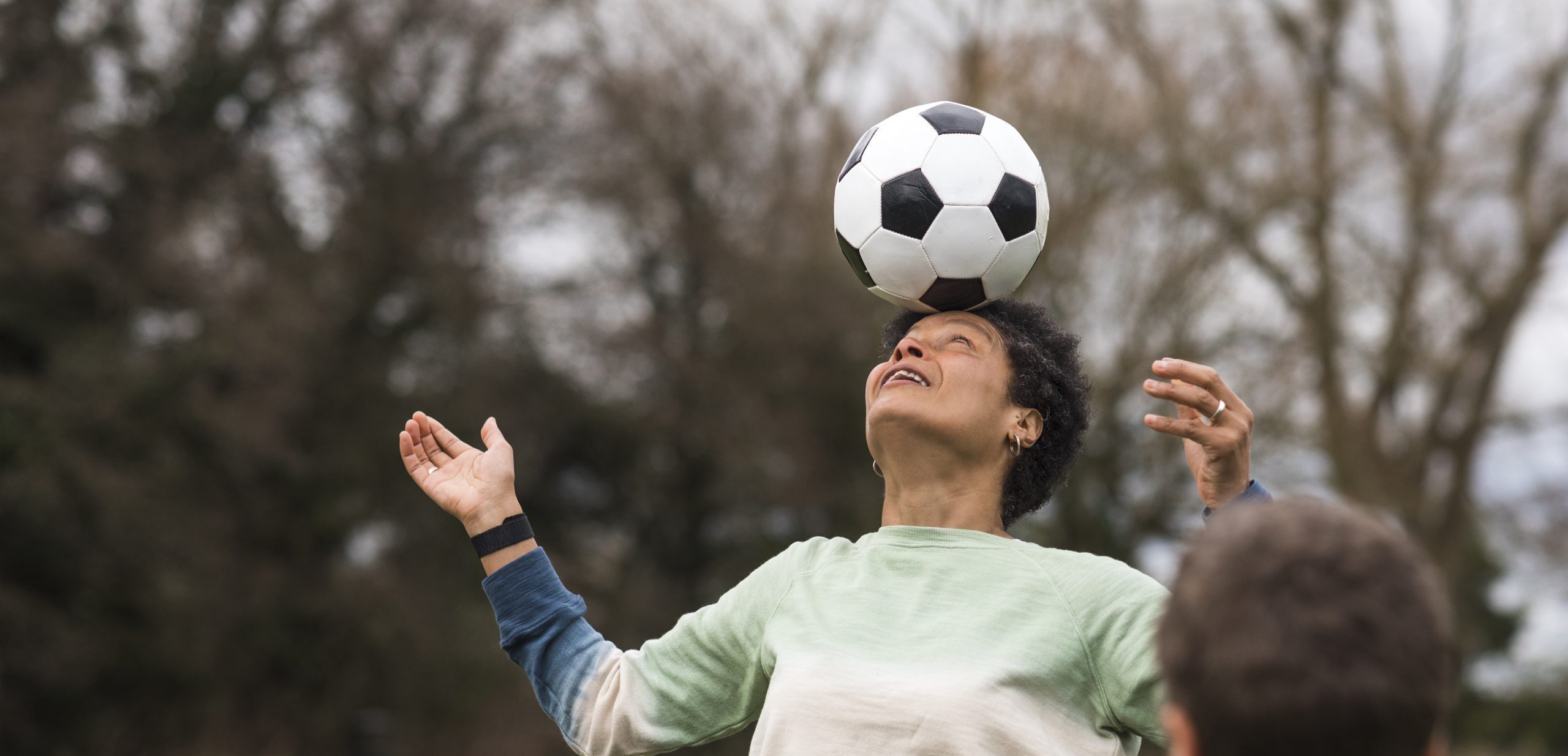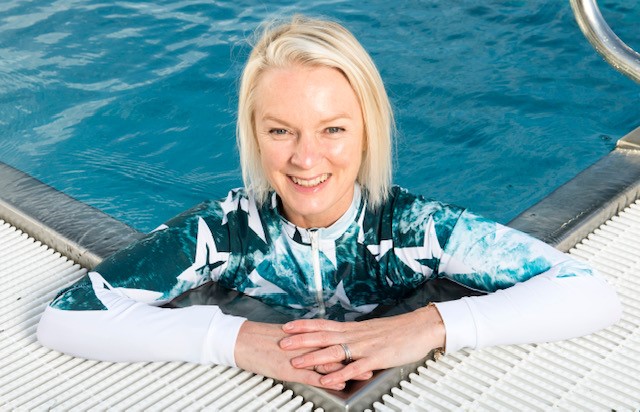Funded by players of People’s Postcode Lottery, this report builds on findings from our 2018 research, Menopause, Me and Physical Activity, that show that women overwhelmingly want to be more active during this life stage. It provides an important opportunity for a reset and to reframe sport and exercise as enjoyable as well as essential to good health and wellbeing.
However, at present, far too many women in midlife are missing out on the social, psychological, and physical health benefits of being active. A third of women aged 41 to 60 are not meeting the Chief Medical Officer’s guidelines of 150 minutes per week of exercise and a fifth are not achieving even 30 minutes per week*.
Within this new research, we examined every aspect of women’s lives over a five-month period to fully understand their experiences of menopause and physical activity and uncover the barriers that women experience to being active throughout midlife and menopause. We focused specifically on women in lower socioeconomic groups because we know they face additional barriers and are less likely to be active, and spoke exclusively to inactive women who had either lapsed from being active previously or had never enjoyed being active.
We found multiple physical, psychological, and social midlife and menopause factors are preventing women from getting active at this time which are displayed in our Model of Midlife, Menopause and Exercise.
Women in midlife feel largely ignored, invisible and irrelevant, and this is particularly true when it comes to sport and exercise. Yet sustaining fitness and activity levels for women of this age has such life-changing benefits in relation to happiness, mental wellbeing and physical health, now and into later life.
In order to consider how to re-engage women and re-introduce physical activity to them, we also developed five principles to help the sport sector deliver programmes that speak to women’s needs.
Five principles to inspire women to be active in midlife
- Endless possibilities: Expand perceptions and opportunities for being active
- Judgement-free zone: Welcoming and supportive environment
- Support network: Offer built-in social support
- Expand the image of what ‘sporty’ means: Inspiring, relatable role models
- Make it relevant: reference specific, relevant benefits
Following the completion of the research, we hosted an online session with experts from the sport, healthcare and HR sectors. Together the group discussed the findings and identified recommendations to improve women’s lives during this time, looking at both menopause and physical activity.
Recommendations
- Reframe midlife exercise in an inspiring way: talk more about how great it feels, and less about it being a necessary evil.
- Use Women in Sport’s five principles to improve existing offers and create new opportunities.
- Engage new sectors and stakeholders, such as employers and health professionals, to help get women moving in midlife.
Women in midlife are also invisible in the marketing and delivery of sport and exercise, and alongside this unique piece of insight, Women in Sport has partnered with Getty Images to launch a curation of ground-breaking images and short films that challenge how women going through the menopause are portrayed in society. They showcase women who have experienced menopause, illustrating the joy of exercise and how it changed their lives through building community, friendship, adventure, fun and camaraderie. The curation of visuals will sit in Getty’s Disrupt Aging® collection. (LINK). The images and videos are available on Getty Images and their sister site iStock for editorial, commercial and stock usage.
*Sport England (2020) Active Lives survey May 19/20.
Five factors for success
We strongly believe that ‘getting it right’ at an early age is key. Our insight starts to build an understanding of how to provide girls the best possible start-point, nurturing girls’ competence and self-belief from a young age to build resilience and kick-start a life-long love of being active.
1. Surround girls with the expectation that they will succeed: Parents, teachers and peers must help to change the narrative by showing that they value girls taking part in sport and expressing expectations that they will do well.
2. Build girls’ skills early so there’s a level playing field: Encourage, expect, and support girls from a young age to master the fundamental skills they need to succeed in sport. Skills give sport meaning for girls, make competition fairer and success more attainable, building and sustaining self-belief.
3. Don’t ‘dumb it down’ for girls: Stop the messaging of young girls being fragile, weak and not liking competition. Instead reinforce the expectation that they can be courageous, powerful and fearless in their own way and are expected to be, and can be, good at sport.
4. Provide more opportunities for young girls: Girls need to have as many opportunities as boys in school PE, after-school clubs and in the community, particularly in team sport. Opportunities must be visible, accessible and create an environment where girls are genuinely welcomed and equally valued.
5. Harness the school and after school environment: Teachers and coaches need to invest in closing the skills and confidence gaps between boys and girls. Use school to embed the right attitudes amongst boys towards girls in sport, so there is greater appreciation, value and respect for girls playing sport.

